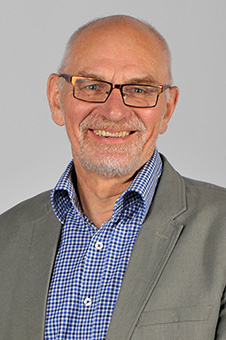A new study shows the disparity of patient need across general practices and backs calls for a complete overhaul of the front-line health care funding system.

Professor Tony Dowell.
The collaborative study, between University of Otago Professor of Primary Health Care and General Practice Tony Dowell, Tū Ora Compass Health and Ora Toa Primary Health Organisations, the Royal New Zealand College of General Practitioners (RNZCGP), and Datacraft Analytics, has recently been published in the Journal of Primary Health Care.
Using general practice data from Wellington Primary Healthcare Organisations, the study found patients with adverse health needs and multiple long term health conditions are concentrated in a small number of practices which have a high proportion of high-needs patients.
Practices with a high proportion of high health-needs patients were defined as those where at least 50 per cent were Māori or Pasifika peoples or lived in high deprivation (quintile 5).
The study showed that among the Wellington practices which care for about 350,000 patients, high-needs patients are:
- twice as likely to have diabetes (8.4% HPHN (High Population High Need) vs 4% Non-HPHN),
- gout (5.1% vs 2.8%),
- three-fold more likely to smoke (18.3% vs 6.5%), and
- more likely to have an increased BMI (23.2% vs 16.1%).
“While overall we know our general practice teams are having to work far harder to manage high-needs patients, what this study shows is that in around 11 local general practices, even more care is required to manage the higher concentration of people presenting with multiple complex long term health conditions living within an environment of socio-economic deprivation,” study co‑author and RNZCGP Medical Director Dr Bryan Betty says.
“This 'concentration of complexity' study backs up findings in the latest Sapere report showing that current models of primary care funding are not adequately resourced for quality primary care in these settings, and more so in high needs practices,” Dr Betty says.
“Government capitation funding needs to align to patient need and the time to manage that need. This should reflect age, sex, ethnicity, deprivation and co-morbidity factors.”
Professor Dowell says through the Pae Ora legislation and Te Pae Tata interim health plan, the current health sector reorganisation emphasises a need to address long-term underinvestment in primary care.
“Given the overall prevalence of adverse health indicators throughout New Zealand communities, our findings also highlight the need to develop equitable and appropriate resourcing for all patients in primary care,” Professor Dowell says.
Publication details
The concentration of complexity: case mix in New Zealand general practice and the sustainability of primary care
Anthony Dowell, of the University of Otago, Wellington, Bryan Betty, of The Royal New Zealand College of General Practitioners, Chris Gellen, Chris Van Houtte, Dipan Ranchhod and Justine Thorpe (CEO), of Tū Ora Compass Health Primary Care Network, Sean Hanna, of Ora Toa Health Services and the University of Otago Department of General Practice and Rural Heath, and Jayden MacRae, of Datacraft Analytics.
Journal of Primary Health Care
For more information, contact:
Professor Tony Dowell
Department Primary Health Care and General Practice
University of Otago, Wellington
Email tony.dowell@otago.ac.nz
Jessica Wilson
Adviser Media Engagement
University of Otago
Mob +64 21 279 5016
Email jessica.wilson@otago.ac.nz
